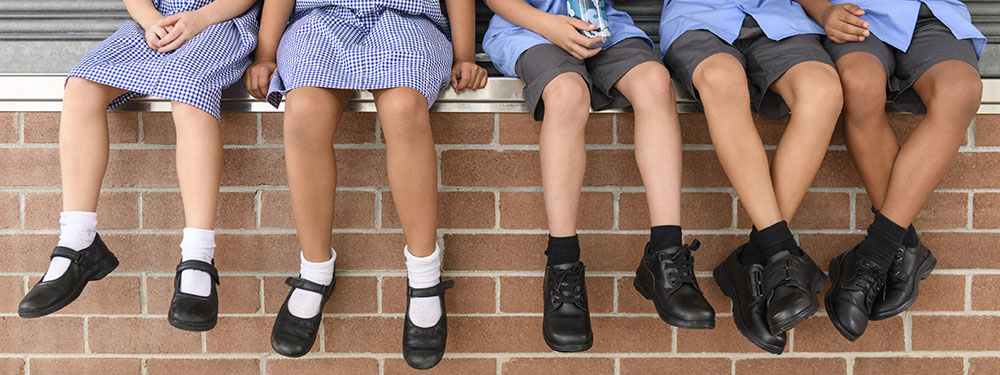
By Grace Hardy, Director of Operations
Two of my stand-out memories from primary school are learning about the general election and the Spanish Armada. We learnt about these topics for weeks with lots of subjects weaved in. For the Armada, we wrote letters, soaked them in tea and set the edges on fire so they looked old. So much fun and a health and safety nightmare now. I remember proudly showing my book of work filled with geography, history, creative writing, science and art.
For the general election, we covered democracy, politics and journalism and made predictions. There was a real buzz in the class as the election grew closer and the winning party was revealed.
I don’t remember much from primary school, but I remember these topics. They were interesting, exciting, varied and I was definitely learning.
I described these projects to my children. Flo is ten (year 5) and Eddie is seven (year 2). They had no concept of what I was talking about. They are used to units, modules, handouts, short exercises and lots of facts, definitions and techniques. They are learning but I wonder what they will remember about primary school when they are older?
I asked them if they are learning about the general election. Eddie said yes. My heart soared. I asked a few more questions in that slightly desperate way parents do to try and keep kids talking about school. “Oh, it wasn’t a teacher, it was when they put Newsround on at the end of the day.” My heart sank. I asked Flo. Nothing either.
What a missed opportunity. Maybe it’s coming soon? An assembly? Maybe the lucky few who are in the school parliament will discuss it?
What has Flo been learning this week? Modal verbs. Any takers on what a modal verb is? Me neither. Flo gave me a great explanation and an example. Her teacher would be proud. Am I? Of course, but her experiences in the classroom could be so much more.
Who decided that modal verbs are essential learning for young children? Could the general election have been weaved into that lesson? Are modal verbs more important than current affairs? I’m sure no-one thinks it is a case of either/or.
I’m not a teacher but have worked at SSAT for a long time and seen outstanding practice. I know that it is possible to create a curriculum that meets the needs of all students but I also know how hard it is at the moment.
Teachers need time and head-space to do this. How can they drop everything and create a project with Ofsted looming, sports day to arrange (and re-arrange), making sure all the facts are learnt, all the neat chunks of knowledge are ticked off? How can they do this when they are burnt-out and picking up so much more than their role traditionally covered?
What do I want for my children? A love for learning. Joyful, exciting lessons, a chance to build collaborative skills, be creative, learn and have fun. I want them to enjoy going to school, and they do. I know my children would enjoy working on more projects but it’s not for everyone, and to be honest, they’ll probably be ok whatever they are doing.
I asked them what they thought of school. Flo gave me a withering look and walked off filling me with dread as we head towards her teenage years.
Eddie’s been up since 5.30am and is bouncing off the walls. Maybe I’ll get more from him. I ask him what he’s looking forward to at school today. “Lunch” he says. It’s Friday so it’s fish and chips. Rookie mistake.
I try a different tack. I ask him what his favourite subject is. He thinks and tells me it is DT and computing. This is new. I ask him why and he said it’s because there is no right or wrong. I ask him about other lessons and he says that always having to be right takes the fun out of it. He said that he feels under pressure and wants to be more creative.
Maybe this is a bit of a stretch but is this the start of ‘fact fatigue’? The constant binary of right or wrong and no scope for creativity? Is this what I want for my children? Not really.
Flo returns and warms to the topic. She says that she’d like to be in a smaller class so she can focus more.
And that sums it up. They want to learn and be creative. They want distractions to be managed but see how it’s impossible in a large class.
I don’t blame any of their teachers or school leaders. We are happy there and I am grateful. They are doing a great job.
It’s the system. A system that is chronically underfunded and seems to prioritise the relentless pursuit of knowledge that is at times suffocating some of our children.
As the election looms, that’s what I will be looking for as a parent. Better funding for the education system. Our teachers deserve it and so do our children. An education system that gives teachers the head-space and freedom to teach in a way that best suits all of the children in their class.
Meanwhile, I’ll talk to the kids about the general election and brush up on my modal verbs.
